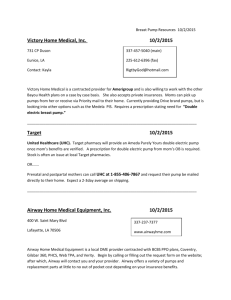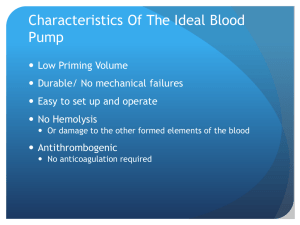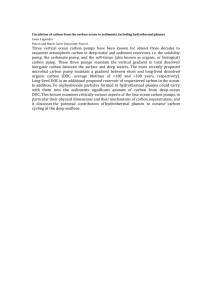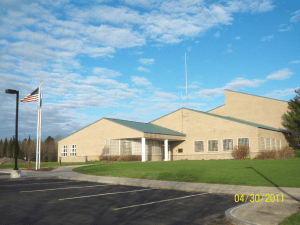Yachuyaj Wo – Garden Project Report 1 – Feb 2013
advertisement
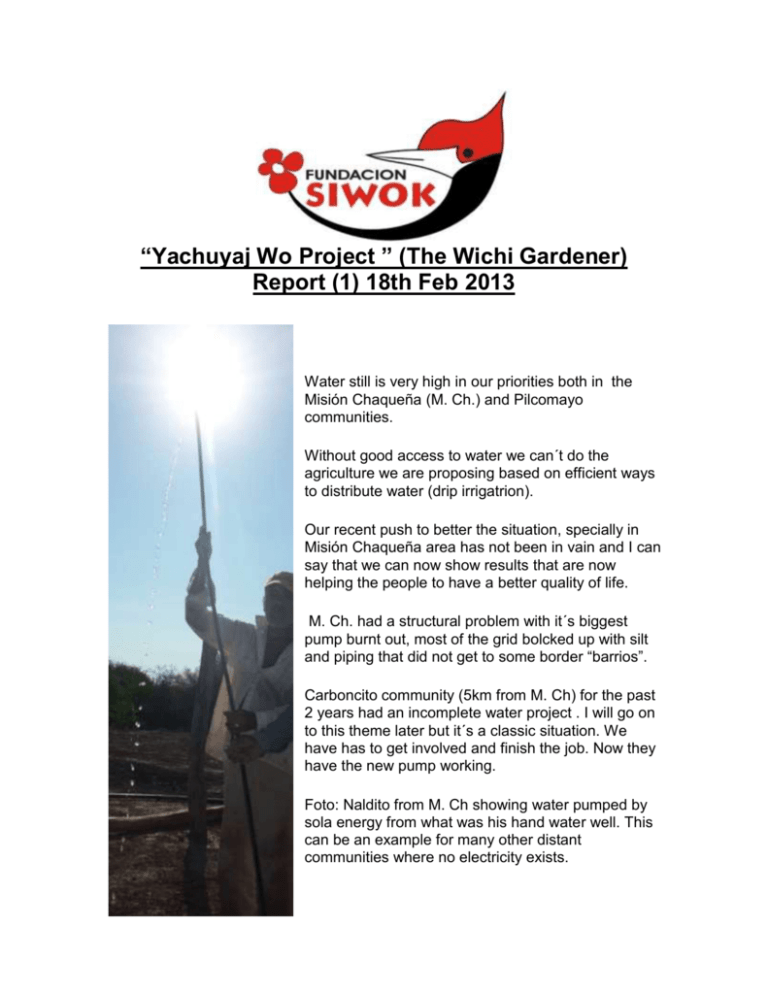
“Yachuyaj Wo Project ” (The Wichi Gardener) Report (1) 18th Feb 2013 Water still is very high in our priorities both in the Misión Chaqueña (M. Ch.) and Pilcomayo communities. Without good access to water we can´t do the agriculture we are proposing based on efficient ways to distribute water (drip irrigatrion). Our recent push to better the situation, specially in Misión Chaqueña area has not been in vain and I can say that we can now show results that are now helping the people to have a better quality of life. M. Ch. had a structural problem with it´s biggest pump burnt out, most of the grid bolcked up with silt and piping that did not get to some border “barrios”. Carboncito community (5km from M. Ch) for the past 2 years had an incomplete water project . I will go on to this theme later but it´s a classic situation. We have has to get involved and finish the job. Now they have the new pump working. Foto: Naldito from M. Ch showing water pumped by sola energy from what was his hand water well. This can be an example for many other distant communities where no electricity exists. As always my trip starts stopping first at Las Cañadas horticulture farm where many young people go to look for work. This is a very sad situation but it´s normal these days. All our developmente work from the 70´s onwards was intended to stop this exodus. The crafts was the tool to do this for over 25 years but that has stopped now as we at Siwok have downsized tha craft production effort (reason very difficult to run and highly risky). I crossed these lorries full of Palo Santo wood (the lovely greesn scented wood crafts are made of). The wood is on it´s way to China. This is connected to what we mentioned before. It´s mad that this precious wood is being cut down and then sent with little value added to China while at the same time the wichi young have to emigrate in search for work. We know that each kg of wood can add a value U$D30-40/kg. So this 25ton lorry can provide up to 1 million dollars!!!! This other lorry I crossed coming home. It´s lovely black Guayacan wood (Caesalpina paraguariensis) like ebony but not as black. All to China. Above photos of crafts that add labour to the woods and should be promoted. We were nine in the cabin and five sitting in the trucks back box (plus another 5 puppies…). The loss of natural resources, mediocre formal education, low investiment in water infrastructure and population explosion are all part of an explosive cocktail. Agriculture HAS to be a very importan option for the future to defuse this situation. We are getting organized to plant peppers and tomatoes in the winter months that is why we were taking plastic so that the people can cover the plants in winter. Taking the rolls early sends a message of hope to the people. For the first time Siwok Foundation has received support from the government to do these water and agriculture investments. We are very thankfull and if we do a good job more support could be on it´s way. From the end of Feb to August we will be producing peppers and tomatoes. Here the plastic to protect the plants from frosts. Rolls of piping that will take water to “dry barrios”. The new pump that we installed is double the size (15HP) of the old one that was burned out and now it fills the tank in less than half an hour. Before it took two and a half hours. This with new piping we hope will make life açeasier for many plus they can do agriculture. This is a classic picture you see in M. Ch. Women off to get water. Remember we are talking of 45/50ºcent temperatures. Going back to the theme I mentioned about unfinished projects. It´s a big problem as the “Hunters” now hunt projects from officials, NGOs, churches, etc and nto deer, armadillos and iguanas. They are interested in the daily wages payed by the project but not in the actual objective of the project (pig production, agriculture, etc). So when these officials come, not knowing who´s who they are fooled by the Wichi and don´t comply with their responibility. In the end they end up not being able to receive help again. That happened in Carboncito where we organized that Jose Cicka (for many years woking with the Anglican social development program) connect the unfinished water works. Left is the cistern and pump that was not used and we had connected. Only problem is that the pumps that should pump water from the cistern to the elevated tank were too small. We are asking the original donors (Ministry of Agriculture) to change the pumps for a 3HP bigger one but they say they will not put a cent more in Carboncito. It was a lovely sight seeing water being pumped with solar pannels. A school from down south donated the pannels. We hope that Landito here can now irrigate his plot without having to pump all by hand. As water has not been high in the priorities of the government the Wichi have started to take direct action to change their situation and this way of showing discontent is dangerously being successful. Of the 7 pumps in the Pilcomayo that were unfinished when we started our work a year only one is now connected to the electricity and community grid. Five others have the tower and tank but not the connection either to the electrical grid or the water grid. The last one to be done was Santa María and people got fed up of waiting so they “kidnapped” the pick up truck. The mayor of Santa Victoria thretened to never give the community their new pump for this direct action. Knowing this was happening Chris Wallis contacted me and I was able to put the Wichi in contact with the local newspaper. This below was the article they produced and the pressure worked as now the pump is finished (although still not connected! http://www.radiosalta.com/detalle_noticias.php?id_conten idos=20872#.URE7dEYagE0.email SALTA, - 30/01/2013 Santa Victoria Este Murió cuando buscaba agua y reclaman Justicia 30/01/2013 | Aborígenes protestan por la muerte de la joven wichi Karina Asunción Torres. Piden agua potable para liberar el vehículo. Here the kidnapped vehicle. Direct action was also used in La Puntana where two pumps were unfinished for more than a year and a half. Fifteen motoerbikes left the community (2men in each) and went to S. Victoria municipality which they “took over”. Having done this they negotiated to leave only if the mayor put a date to connect the pumps. This he did and now I have news that the work is done. On one hand you can say that it´s good that they stand up for their rights and push that these works are finished but on the other it seems that direct action is the only system that works. It could mean problems in the future. SOME COMMENTS 1- Water still has to be number one priority if we intend that this project indirectly lowers the malnutrition and infant mortality rate. 2- Francisco Perez comment while alone with Kevin McKemey was that in his extended family group there were babies that were lower in weight than they should (malnourished). Now that has turned arround and there are no underweight babies. 3- We are proving that the wichi family can produce food in a simple and cheap way adapted to their ancestral way of farming (slash and burn sowing in the forest). 4- Siwok Foundation has to keep the pressure on the government so that all the unfinished pums are done complete with the electrical connection and the connection to the water grid. It´s a scandal that in these very poor and hot places water is not available in the quantity that should be. 5- The sale of Palo santo to China has to be stopped. Craft production should not stop and Siwok has to carry on providing outlets for crafts. 6- Family agriculture has to be promoted to fit into the basquet of survival techniques so as to prevent migration. 7- We depend on Wichi leaders to transfer the necessary know how. These people have to be payed and we have little budget for them. A fund raising effort must be organized so as to carry on providing this strategic service. Alejandro Deane alecdeane@yahoo.com 0387-155096482 BONUS 1: The wichi education program of the church´s social program (ASOCIANA) has published a very good book in spanish and wichi on how wichi see their past education how it compares with what they have now (formal school ed). It´s very important that this is read by the Ministry of Education´s bilingual program team that work in all wichi schools so they can give a better and more relevant service. BONUS 2: Some little crawlers under sleeping under the pipes
